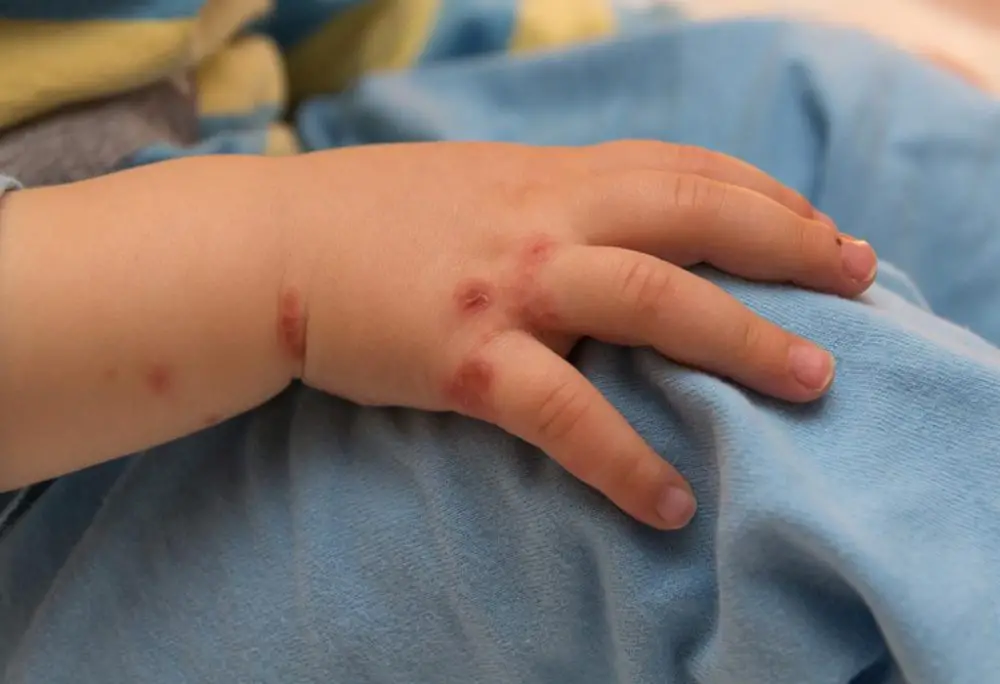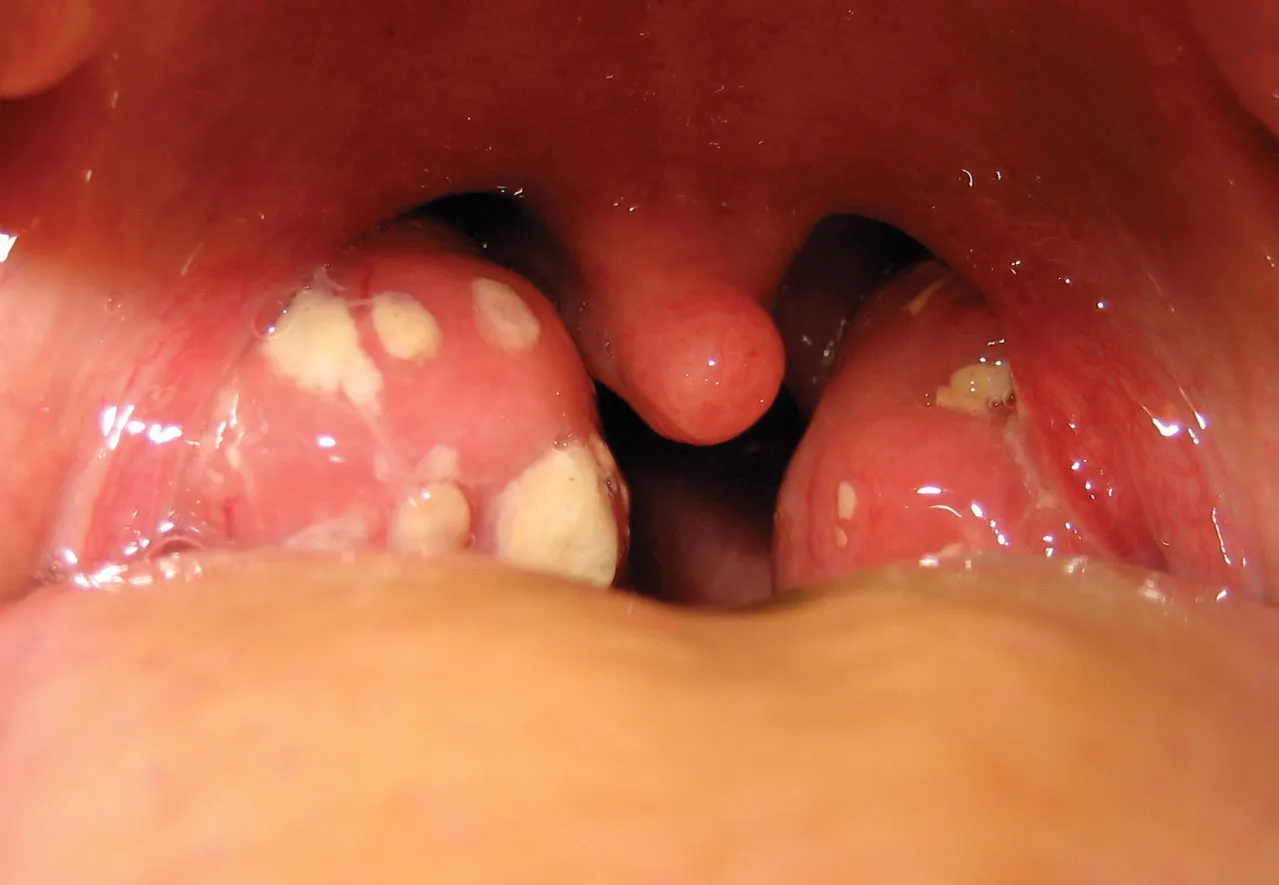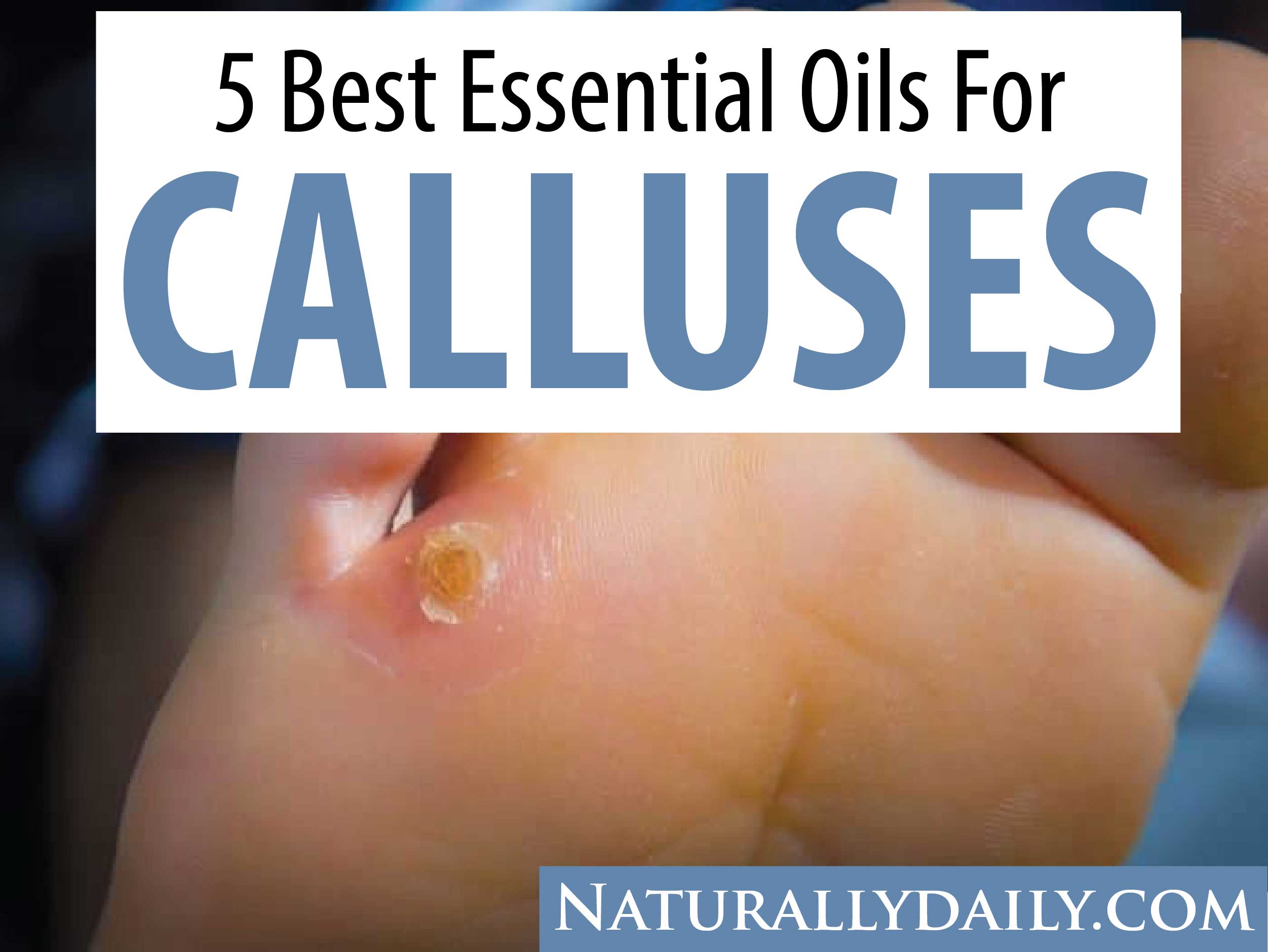Taking care of a baby is never easy.
However, using essential oils for babies can ease your way of raising a happy and healthy child.
One of the most common complaints among parents is colic. It affects up to 20 percent of infants in the world [1].
Colic is a condition in which babies cry incessantly. They cry at a particular time each day for at least three days per week [1].
Colic usually resolves on its own by the time a baby reaches three or four months of age [2].
There are other issues that parents with babies have to deal with. These include diaper rash, cradle cap, teething, and indigestion [3, 4, 5, 6].
Read on to learn more about the efficacy and safety of using essential oils for colic, diaper rash, and other issues in babies.
Essential Oils for Babies: How Effective and Safe?
Essential oils are also known as volatile oil, and ethereal oil. They are often named after the plants from which they got their essence.
So why use essential oils instead of other home remedies for babies?
Essential oils have a history of reliability. Its use in medicine dates back thousands of years ago. The oils promote both physical and emotional well-being.
Essential oils for babies for more than three months can help them sleep, calm anxiety, and even relieve symptoms of colic, diapers rash, and other issues that arise.
14 Safe Baby Essential Oils That You may Use
Essential oils may work effectively on babies. A recommended amount and procedure of using the oils may prove to be gentle and effective for your delicate baby.
Take a look at the following list to know how these oils work and the methods of applying them to your babies.
1. Chamomile Oil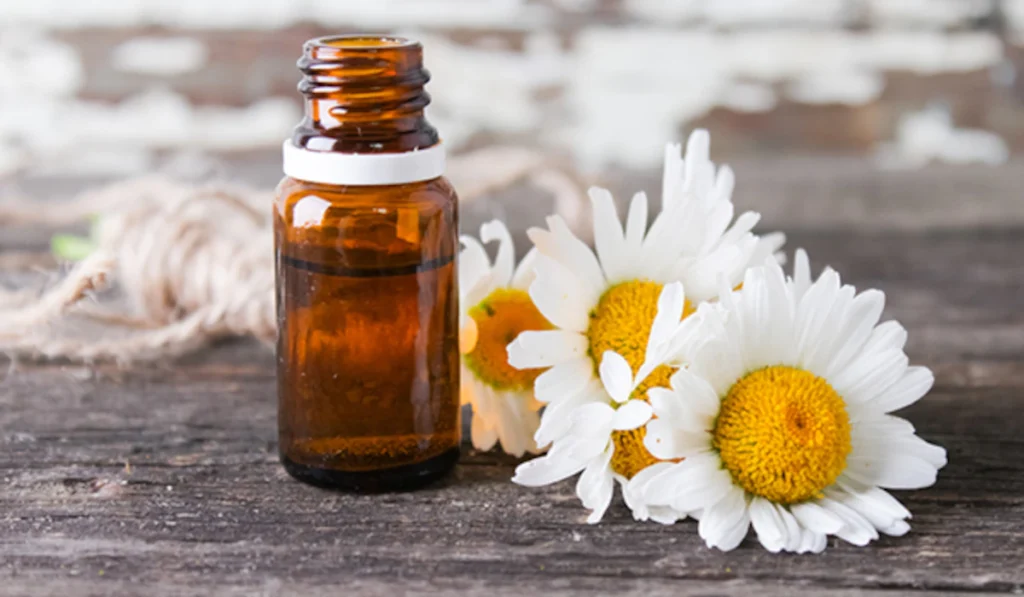
Did you know that in ancient Egypt, chamomile was considered a “sacred gift from the sun god” [7]?
Parents won’t find that hard to imagine, as this can soothe a fussy baby, among many other things.
Whether it’s teething or colic, chamomile can help.
Researchers have investigated the effects of chamomile and other herbs in babies with colic [8].
In one clinical trial, 68 healthy babies with colic between two and eight weeks old were given either herbal tea consisting of chamomile, fennel, licorice, balm, mint, and vervain, or placebo tea with glucose and flavoring [8].
Results show that after seven days, the chamomile herbal tea eliminated crying in 57 percent of the infants without causing any side effects [8].
As for teething pain, chamomile can help with its strong analgesic and anti-inflammatory actions.
According to the findings of an animal trial, the oil’s actions were due to its ability to alleviate swelling and inhibit pro-inflammatory enzymes [9].
How to use chamomile oil for babies:
- Pour one drop of chamomile oil into a washcloth.
- Use a washcloth to cover the ice cube.
- Gently press an ice cube on the cheek or mouth of your baby to relieve teething.
- For colic, put chamomile oil on a cloth.
- Put the cloth near him/her to ease fussiness.
Key Takeaways:
Use chamomile essential oil to help an infant with colic and teething problem.
RELATED: 14 Health Benefits of Chamomile Tea (Backed by Science)
2. Lavender Oil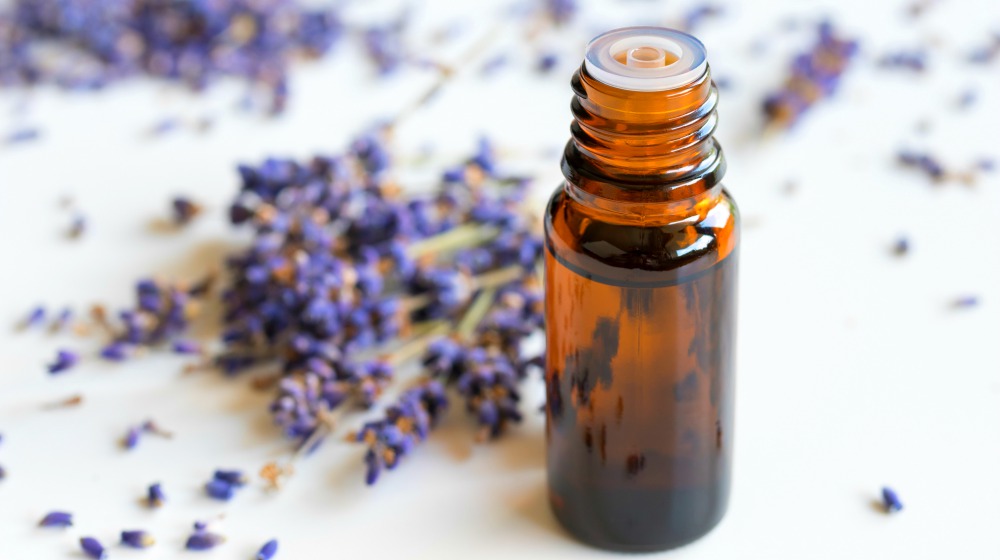
If your baby is fussy, and won’t stop crying, let lavender come to your rescue.
A study conducted in Turkey in 2012 indicates that aromatherapy massage with lavender oil can successfully control symptoms of colic, including nonstop crying [10].
The use of this oil during bath time appears to have the same benefits. It even helps put the baby to sleep, as explained in a 2008 study [11].
Lavender also has anxiolytic and sedative properties. These components help deepen sleep and lower anxiety levels [12].
Method of using lavender essential oil for babies:
- Dilute two drops of lavender oil in liquid milk soap.
- Add to the baby tub.
- Use this to bathe your baby once or twice a day.
Key Takeaways:
Lavender essential oil is great for soothing your crying babies.
RELATED: 11 Health Benefits of Lavender Oil That You Should Know
3. Lemon Balm Oil
Lemon balm is one of the most potent medicinal remedies in the Mediterranean region [13]. It is part of the Lamiaceae plant family.
Among its many benefits is that it can help calm your baby and lull him or her to sleep.
In a 2005 study, lemon balm was one of the herbs used by Italian researchers to treat infant colic [14].
Out of the 93 breastfed babies with colic, those who were exposed to lemon balm cried less frequently than those who were given a placebo [14].
Lemon balm combined with valerian also proved to be effective in reducing restlessness and sleeping difficulties in babies and children [15].
Recommended directions:
- Mix one drop of lemon balm and valerian oil each.
- Put one drop of the oil mixture on your shoulder.
- Rest your baby’s head on your shoulder and rock him/her to sleep.
Key Takeaways:
Lemon balm oil can help you in keeping your baby calm and cry less.
4. Valerian Oil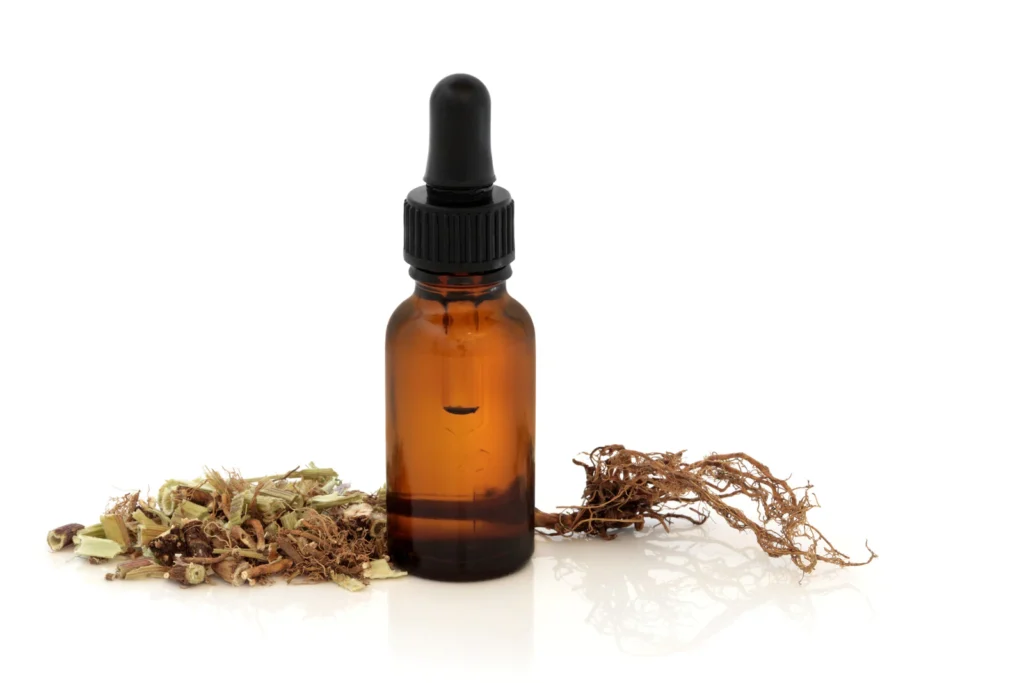
One of the most notable uses of valerian is for inducing sleep, as documented in a wide variety of research [16, 17, 18, 19].
Clinical trials show that valerian can decrease sleep onset latency, and improve the quality of sleep [20].
Sleep onset latency refers to the time it takes to transition from a wakeful state to sleep.
Valerian has been proven to make it easier for people to doze off.
So it’s no surprise that this oil is highly recommended for improving sleep in irritable babies.
Paired with lemon balm, it can successfully tone down restlessness and induce sleep in children younger than 12 [15].
You’ll Need:
- Two drops of valerian oil
- One drop of lemon balm oil
Recommended directions for diffusing the oils:
- Use a diffuser to disperse the scent of valerian and lemon balm oils in the room.
Key Takeaways:
Valerian essential oil improves the sleeping conditions of babies and helps them to sleep well and longer.
5. Fennel Oil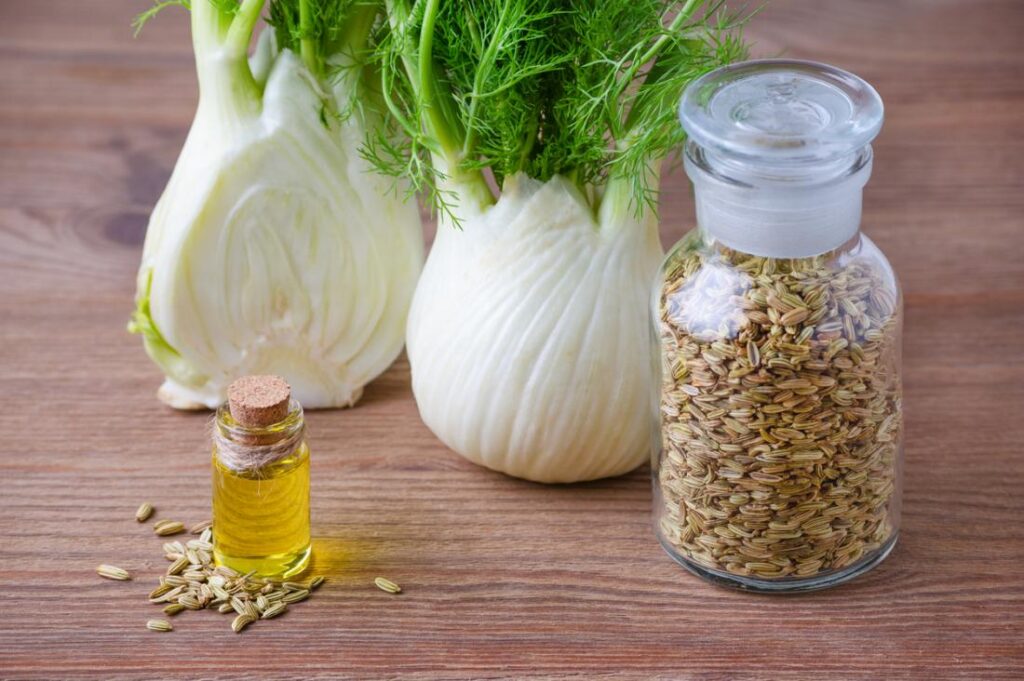
Parents can also rely on fennel oil for calming a baby who can’t seem to stop crying.
In a 2003 experiment, researchers evaluated the effects of fennel oil and placebo in 125 healthy babies with colic [21].
Fennel oil eased colic in 65 percent of the participants, reducing crying to nine hours per week [21].
Researchers point out that fennel relieved intestinal spasms and promoted motility [21].
Many studies have similar findings, as stated in the 2007 review [22].
There were no side effects, suggesting that fennel oil is well tolerated by infants [22].
How to use fennel oil for infants:
- Combine two drops of fennel oil with one tablespoon of jojoba oil.
- Pour one or two drops of the oil mixture on your baby’s forehead.
- Do this once a day.
Key Takeaways:
Fennel essential oil also works great with calming and soothing your babies.
RELATED: 14 Benefits of Fennel Tea You Don’t Want to Miss Out on
6. Tea Tree Oil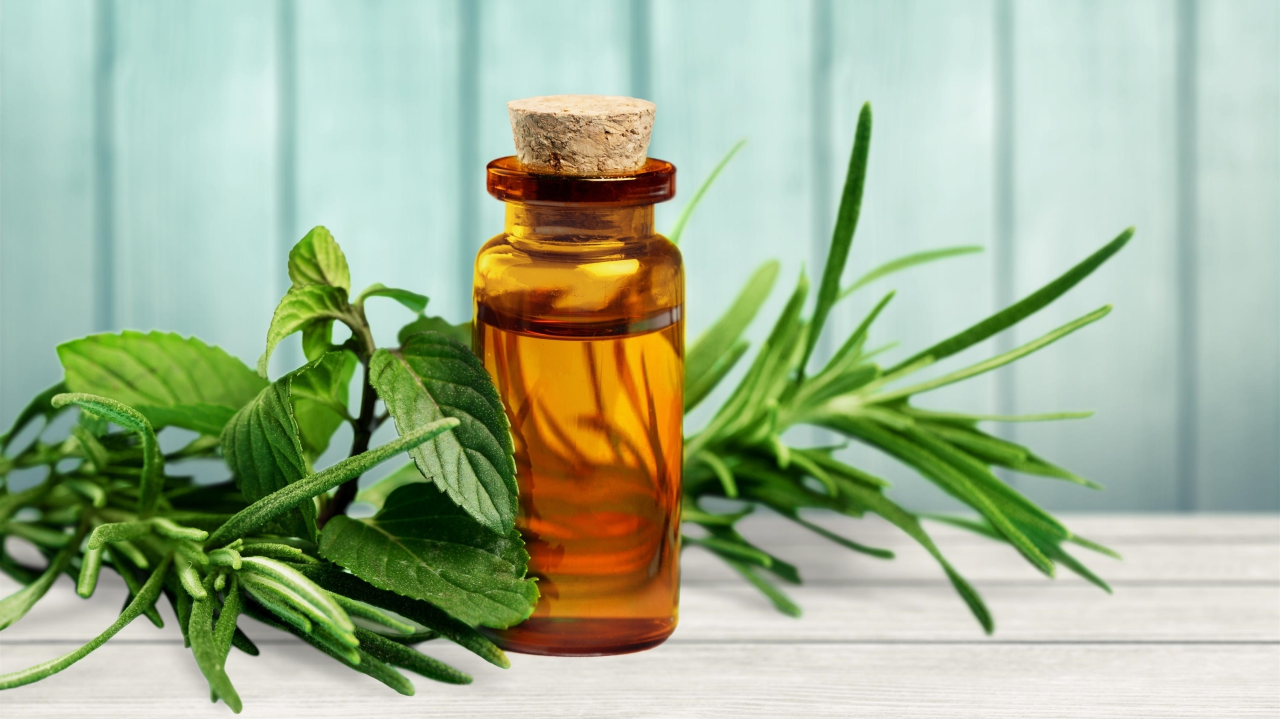
Another common problem you’d have to deal with is diaper rash.
It is also called diaper dermatitis.
This condition occurs due to prolonged exposure to urine, feces, and chemicals from baby products, and overhydration of the skin [23].
In Australia, one of the most reliable remedies for nappy rash is tea tree oil [24].
That’s because tea tree oil is a potent antiseptic, anti-inflammatory, and antimicrobial.
It works to cleanse the skin, reduce inflammation, and control the microorganisms causing the problem [25].
If you notice that your baby has red, scaly patches on his or her scalp, you can also use this oil.
It may be a safe and effective treatment for cradle caps on babies. Tea tree oil is one of the most effective essential oils for baby eczema.
How to use tea tree essential oil for baby eczema and cradle cap:
- Mix one drop of tea tree essential oil with one tablespoon of almond oil.
- Apply a small amount of oil mixture to your baby’s bottom after each bath.
- For cases of cradle cap, apply a few drops of the oil mixture to the baby’s scalp 30 minutes before bathing.
- Repeat daily until the condition improves.
Key Takeaways:
Tea tree essential oil helps your baby to get rid of rashes, redness, irritations, and inflammations.
RELATED: 9 Effective Ways to Use Tea Tree Oil for Warts
7. Dill Oil
In Ayurveda, Dill is a popular treatment for colic, abdominal discomfort, and indigestion.
It is used for the same purposes in Unani medicine [26].
Dill has soothing effects on the digestive system. It can reduce abdominal contractions and pain [27].
International Journal of Pharmacology confirms that Dill has potent antispasmodic properties [27].
It is also said to be carminative that can relieve bloating and flatulence in infants [28].
Dill can also stimulate milk flow in breastfeeding mothers. It can come in handy if you’re still nursing your little one.
Recommended directions:
- Put one drop of dill oil in a cotton ball.
- Put a cotton ball near your baby when he/she starts to cry.
Key Takeaways:
Use dill essential oil to comfort your babies and cure colic and digestion problems.
8. Lemon Oil
It’s a must to keep your baby things clean and germ-free.
As you know, bacteria can cause disease. And your baby’s immune system is not yet fully developed to fight the bacterial infection.
Common household cleaning products are loaded with toxic chemicals. These can harm your baby’s health and development [29].
These chemicals put your baby at risk for serious ailments. These may stunt his or her development physically and mentally.
That’s why you should seek out healthier and safer alternatives to cleaning products. Natural cleaners such as lemon oil can help in this matter.
This oil is a safe and effective cleaning agent for the baby’s room and things. It has potent antibacterial mechanisms [30].
Recommended directions for using lemon oil:
- Pour five drops of lemon oil into a bowl of water.
- Soak a clean cloth in the mixture.
- Use this to clean surfaces in the baby’s room, and his/her toys and other things.
Key Takeaways:
Use lemon essential oil to keep your baby healthy and safe from all the germs and infections.
RELATED: 10 Ways Lemon Oil Can Benefit your Health
9. Peppermint Oil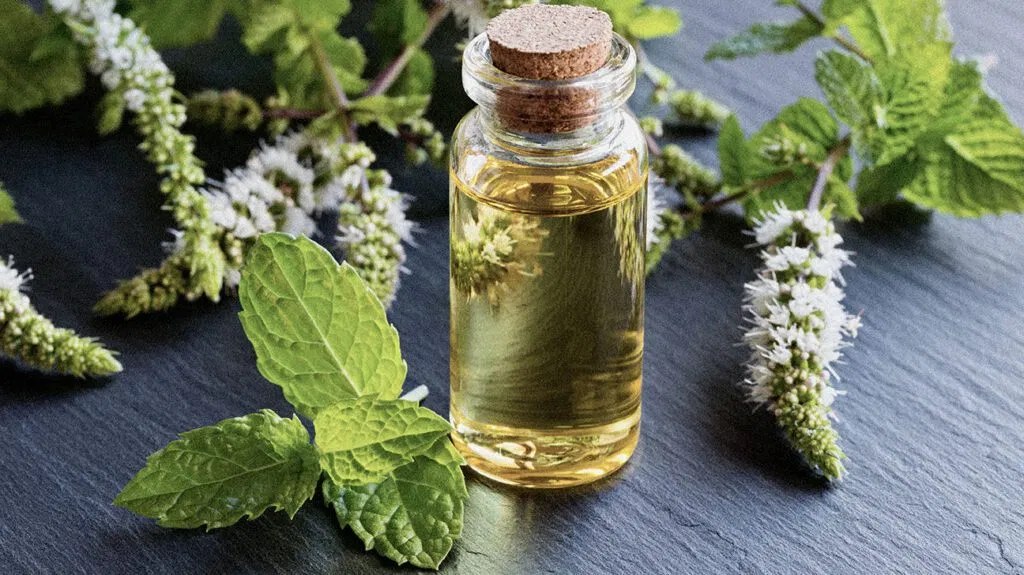
Peppermint oil is an aromatic and stimulant remedy. It is commonly used for alleviating headaches, nausea, and vomiting [31].
If you are not getting a good night’s sleep due to your short-tempered baby, you can also find relief from this oil.
Brazilian scientists found that exposing babies to peppermint oil decreased the crying time from 192 minutes to 111 minutes in the span of seven days [32].
They recommend further research to be done in the area [32].
The anti-colic actions of peppermint come from its antispasmodic and antinociceptive properties [33].
It reduces contractions in the digestive tract. Moreover, it blocks pain signals to provide pain relief [34].
How to use peppermint oil for babies:
- Combine one drop of peppermint oil with one tablespoon of almond oil.
- Apply two drops of oil combination to your baby’s tummy.
- Have him/her lie on his/her back after.
- Do this when you suspect indigestion.
RELATED: 8 Reasons to Use Peppermint Oil for Hair
10. Clove Oil
Teething usually starts between four and eight months [35].
It then resumes sometime at 30 to 36 months at the appearance of the second primary molars [35].
Although this is a normal part of your baby’s development, teething can bring pain and discomfort.
Give your baby some relief with the help of clove oil.
Clove oil has been proven in scientific research to have pain-reducing effects on teething babies [36, 37].
Clove oil’s anesthetic and analgesic properties have long been recognized by folk healers in many different parts of the world.
Method of using clove oil for babies:
- Wrap an ice cube with a washcloth.
- Pour one drop of clove oil on a washcloth.
- Press washcloth gently on your baby’s mouth or cheek.
- Repeat this remedy twice a day.
11. Citronella Oil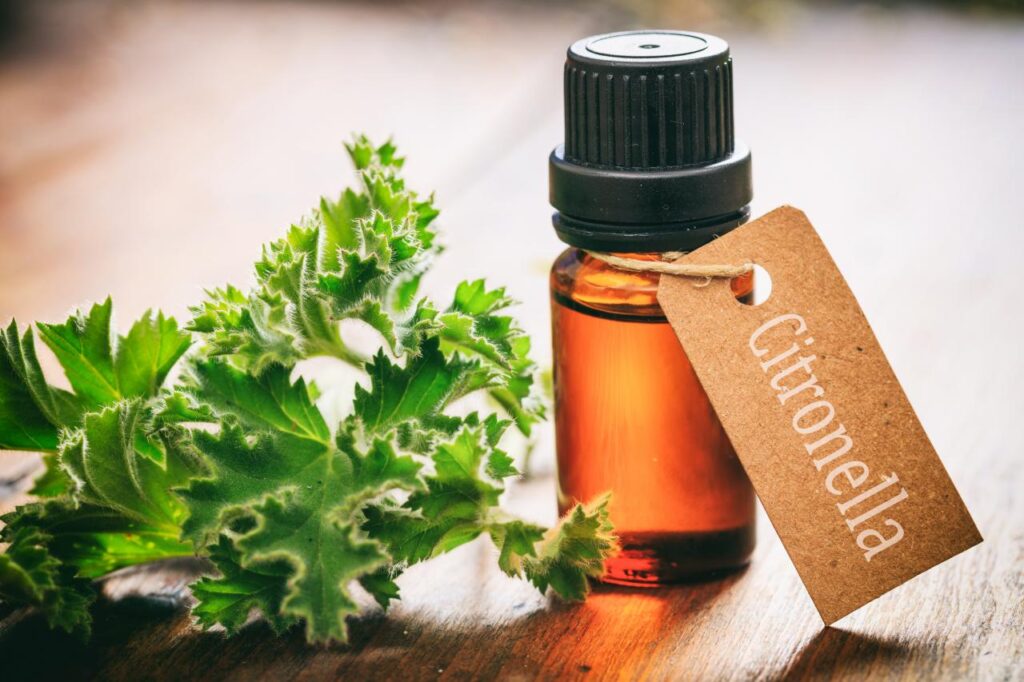
It’s important to shield your baby from mosquito bites. Mosquitoes can bring deadly diseases such as dengue fever, malaria, and the West Nile virus [38].
Most insect repellents that you can find on the market contain a chemical called DEET (N, N-diethyl-meta-toluamide). It is dangerous for babies and young children [38].
Long-term use of this chemical can increase the risk of seizures [38].
This is why it’s safer to rely on natural insect repellents that are just as effective.
Citronella oil is effective in keeping mosquitoes and other insects at bay [39, 40, 41].
A 2002 study indicates that citronella works the same way as DEET. But with fewer side effects and a shorter duration of protection [41].
Recommended directions:
- Combine one drop of citronella oil with one teaspoon of jojoba oil.
- Pour a few drops on a small cloth.
- Dab the small cloth on your baby’s clothing.
- Don’t apply directly to the baby’s skin.
Key Takeaways:
Use citronella essential oil to give your babies natural protection from mosquitoes and other insects.
12. Sweet Orange Oil
When you don’t know what’s causing your baby’s fussiness, try infusing the room with a sweet orange aroma.
Whether it’s teething, exhaustion, or boredom, your little one will calm down by the smell of sweet orange oil.
Various studies have shown that sweet orange oil has anxiolytic effects. It can induce relaxation in both animal and human subjects [42, 43].
Brazilian researchers conducted research in 2012. 40 volunteers who inhaled this oil scored significantly lower in measures of anxiety level [43].
However, we need further research to establish sweet orange oil’s efficacy in specific anxiety disorders.
For babies, this oil is safe to use for topical application and infusion. However, you should not use it for infants younger than six months of age.
How you may use orange oil for your baby:
- Use a diffuser to spread the aroma of two drops of orange oil in the room.
- Do this no more than three times a week.
Key Takeaways:
Infuse your baby’s room with sweet orange essential oil and raise a happy and relaxed child.
13. Eucalyptus Oil
Eucalyptus oil or Eucalyptus radiate originates from the steam distillation of the twigs and leaves of the eucalyptus tree.
There’s another variety of eucalyptus oil known as Eucalyptus globules. You should not use this type of oil for your little ones below two years old.
Eucalyptus oil is a great home remedy for respiratory disorders, nasal congestion, coughs, common cold, and flu.
Recommended directions for using eucalyptus oil on babies:
- Dilute one drop of eucalyptus oil with one tablespoon of carrier oil.
- Massage the blend gently on the chest and the back of your baby.
- Repeat the treatment for a few nights to relieve the respiratory problems of your baby.
Key Takeaways:
Use eucalyptus oil to relieve the respiratory illnesses of your baby.
14. Mandarin Oil
Mandarin essential oil or Citrus reticulate is as effective and soothing as lavender oil. Many parents complain that their babies can’t stand the strong aroma of lavender oil.
Hence you can substitute lavender with mandarin oil, which is milder in scent and flavor.
Mandarin oil doesn’t have phototoxic effects like all other citrus oils. You can safely apply a couple of diluted mandarin oils topically to relieve diaper rash, cold and other problems with your baby.
How to use mandarin oil for babies:
- Dilute one drop of mandarin oil with one tablespoon of jojoba oil.
- Soak fresh medical gauze on the blend.
- Apply the oil to the diaper rashes of your baby.
- Wipe the oil off your baby’s skin after 15-20 minutes.
- Repeat the treatment every alternative day.
Key Takeaways:
Clean the diaper rashes of your baby using a mandarin essential oil blend.
Tips and Precautions
- You need to be alert when you are using something for your baby.
- Always maintain the best hygiene for your babies.
- If your baby seems to grow any allergic reactions to any of these oils, wipe them off immediately and refrain from further use.
- Even in the case of your baby, it is recommended to do a patch test before direct application.
- Take your babies to regular doctor check-ups if they tend to be too irritated or disturbed.
Colic: A Quick Guide
Infants cry for various reasons; when they’re hungry, tired, or need diaper changing, etc.
If an infant cries even after being fed, cleaned, and well taken care of, may indicate signs and symptoms of colic.
Colic is uncontrollable crying in a healthy baby. It isn’t a disease and won’t cause any long-term harm, but it’s a type of pain that disrupts the well-being of a baby.
Causes of Colic
There has not been any substantial research to prove what is the actual cause of colic. However, the factors listed below may be some possible reasons for colic:
- Babies often have a very sensitive temperament. This means they require more attention from the caregivers and parents.
- Their nervous system may not be fully matured yet.
- They are very sensitive to stimulation – more than they should be.
- Foods in a mother’s diet may affect babies who breastfeed.
- On the other hand, babies drinking bottled milk may be intolerant to certain proteins in the milk.
- The most common effect is an intestinal gas that forms when the baby cries too much, and air enters the tummy.
- Acid reflux in the baby.
- Not making the baby burp after a meal or putting the baby in an incorrect position after a meal.
Symptoms like bloody stools, vomiting, and fever are not due to colic. You must contact a doctor immediately in such a case.
Types of Colic That May Affect the Baby
Usually, there are a few types of colic that can affect your baby. These are:
- Renal colic – renal colic is the pain in the abdomen which is generally caused by kidney stones. Such pain can either be constant or periodical.
- Biliary colic – biliary colic is the pain caused when the cystic duct obstructs or the gallbladder contracts. The gallstone usually causes it.
- Painter’s colic – is usually the pain caused because of lead poisoning.
Diaper Rash
Another most common problem seen in babies is diaper rashes. It alarms parents and annoys babies to a great extent.
Diaper rashes usually relate to wet or infrequently changed diapers. These cause a patch of bright red skin on the baby’s bottom.
Diaper rashes are common for almost all babies who wear diapers. In fact, when there is excess moisture locked in, then, there is a higher chance of the baby getting diaper rash.
Surprisingly, diaper rashes are not only caused due to wet diapers alone. Several other factors lead to diaper rashes in babies such as:
- Bacterial or yeast infection
- Chafing or rubbing
- Irritation from a new product or introduction of new foods
- Sensitive skin
- Use of antibiotics
However, the best way to prevent diaper rash is to keep the diaper area clean and dry.
RELATED: Coconut Oil for Diaper Rash: 5 Easy Home Remedies
Should You Take Your Baby to the Doctor for Colic?
It’s always best to talk to your doctor to know the cause of your baby’s crying. The doctor can tell you the exact problem for so and will provide you with the best advice for your baby if he does have colic.
However, you must always remember that symptoms such as fever, vomiting, or bloody stools are not the symptoms due of colic and you must contact your doctor immediately.
Some Q&A
Are essential oils 100% safe for babies?
Essential oils are safe for babies, but there are always exceptions. You need to know which essential oil is good for your baby’s health and which is not. However, in the case of direct application, make sure to dilute the oil with any other healthy carrier oil first.
What are the best carrier oils that can be used to dilute an essential oil?
Some best carrier oil options for diluting an essential oil are- sweet almond oil, jojoba oil, and fresh coconut oil.
Can essential oils greatly help my colic baby?
Yes. They can. Oils like fennel, peppermint, and ginger can greatly benefit your baby and improve their colic symptoms.
How long does colic last?
Coli peaks around six weeks after birth and then significantly improve between three to four months. Almost 80 to 90% of colic ends when the child reaches by the end of four months of age. Some children take a bit longer for colic to end completely.
Is diaper rash contagious?
Not really. It is usually a skin irritation that occurs in almost all babies. Therefore, it should be taken care of swiftly and delicately.
What is a cradle cap?
Cradle cap is also called infantile seborrheic dermatitis. It is a common type of baby rash that looks like a yellowish type of rash which is greasy or scaly or flaky skin on top of the baby’s scalp. You will find a distinctive smell accompanying the cradle cap.
Can I use essential oils to treat both diaper rash and cradle cap?
Obviously, you can! Please follow the directions mentioned above and your baby will be fine in no time!
Which essential oils are the safest for babies and children?
The safest essential oils for babies and children include Lavender, Distilled Lemon, and Mandarin essential oils.
What essential oils are good for babies sleeping?
The best essential oils that will definitely help your baby to sleep better include Lavender, and Roman Chamomile essential oils.
Bottom Line
Baby problems especially colic can be very frustrating for parents.
It can make parenthood challenging. It may put a strain on your marriage, or even steal the time that you’re supposed to enjoy and bond with your little one.
Don’t worry; now you can resolve all these issues with the help of the essential oils for babies discussed here.
Some essential oils are dangerous for babies.
These oils are very concentrated and contain high amounts of chemical constituents.
That’s why it’s highly recommended to dilute such essential oils (e.g., peppermint, eucalyptus) with a carrier oil or cream before applying them to the skin.
Since an infant’s skin is extremely sensitive, dilution is a must!


